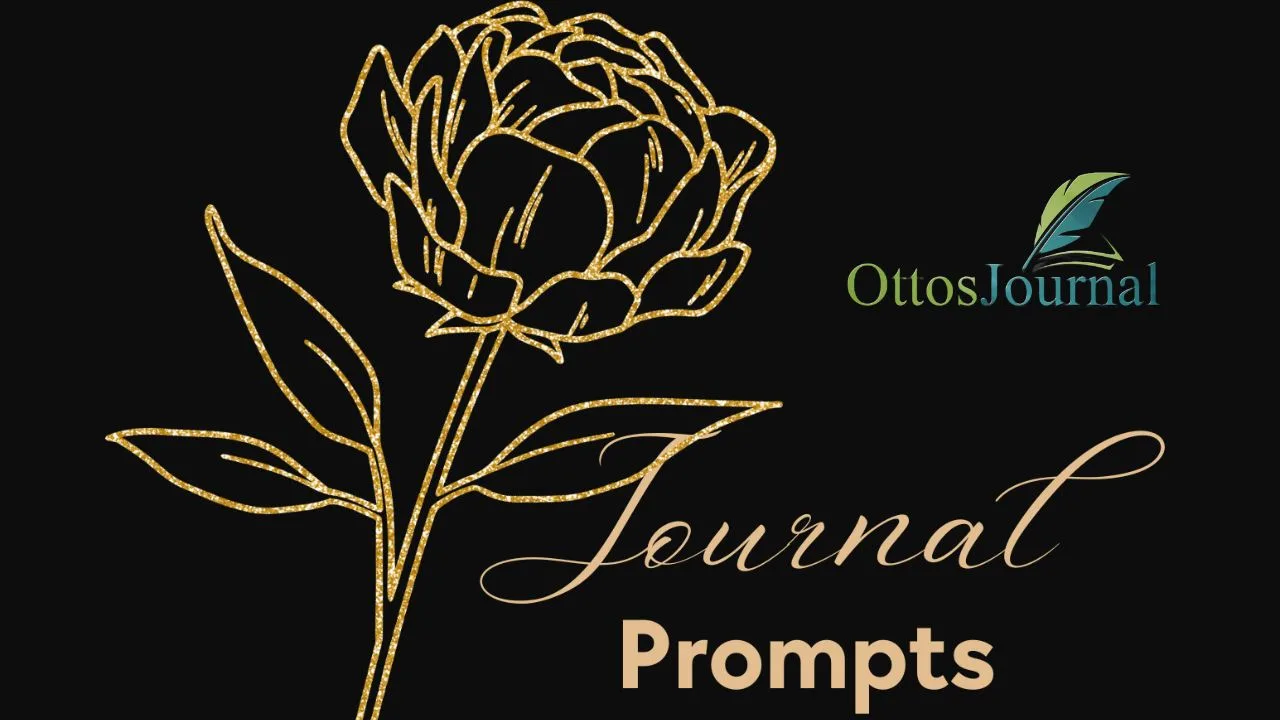Mindfulness journaling is a valuable tool for individuals seeking to increase self-awareness and live in the present moment. By writing down thoughts and feelings, individuals can identify patterns, gain clarity, and reduce stress. Mindfulness journal prompts can help individuals get started with this practice by providing specific topics to explore. In this article, I will share with you 55 mindful journaling prompts to help boost your mental health.
There are a variety of mindfulness journal prompts available, ranging from simple questions like “What am I grateful for today?” to more complex prompts that explore emotions and experiences. These prompts can be used by anyone, regardless of their level of experience with mindfulness or journaling. By taking the time to reflect on these prompts, individuals can cultivate a deeper sense of self-awareness and develop a greater appreciation for the present moment.
What is Mindfulness Journaling
Mindfulness journaling is a practice that involves writing down one’s thoughts, feelings, and experiences in a non-judgmental way. It is a form of mindfulness practice that can help individuals cultivate a sense of inner peace and improve their overall wellbeing.
Benefits of Mindfulness Journaling
There are several benefits of mindfulness journaling, including:
- Improved focus and concentration: Mindfulness journaling can help individuals develop the habit of focusing on the present moment, which can improve their ability to concentrate and stay focused on tasks.
- Reduced stress and anxiety: Writing down one’s thoughts and feelings can be a cathartic experience that can help individuals process and manage their emotions. This can lead to reduced stress and anxiety.
- Improved mental health: Mindfulness journaling can help individuals develop a greater sense of self-awareness and self-compassion, which can improve their overall mental health and wellbeing.
- Improved physical health: Research has shown that mindfulness practices can have a positive impact on physical health, including reduced inflammation and improved immune function.
The Mindfulness Journaling Process
The mindfulness journaling process involves setting aside time each day to write down one’s thoughts, feelings, and experiences. Here are some tips for getting started:
- Find a quiet, comfortable place to write: It’s important to find a place where you can focus and feel comfortable.
- Set aside a specific time each day: It’s important to make mindfulness journaling a habit by setting aside a specific time each day to write.
- Start with a prompt: If you’re not sure what to write about, start with a prompt. There are many mindfulness journaling prompts available online that can help you get started.
- Write without judgment: It’s important to write without judgment, allowing your thoughts and feelings to flow freely.
- Review your writing: Take some time to review your writing each day, reflecting on your thoughts and feelings and identifying any patterns or insights that emerge.
Mindfulness journaling can be a powerful tool for improving one’s mental and physical health. By developing the habit of focusing on the present moment and cultivating a sense of self-awareness and self-compassion, individuals can improve their overall wellbeing and lead happier, healthier lives.
How to Create a Mindfulness Journal

Creating a mindfulness journal is a simple and effective way to cultivate mindfulness in your daily life. Here are some steps to get started:
- Step 1: Choose a journal. You can use any notebook or journal that you like, or you can use a digital journaling app. The important thing is to choose something that you feel comfortable using and that you will enjoy using on a regular basis.
- Step 2: Set aside time for journaling. It’s important to make time for journaling each day, even if it’s just a few minutes. This can be in the morning, before bed, or at any other time that works for you.
- Step 3: Find a quiet place to journal. Choose a quiet and comfortable place where you can focus and relax. This could be a quiet room in your house, a park, or any other place that feels peaceful to you.
- Step 4: Choose your prompts. There are many mindfulness journaling prompts available online, or you can create your own. Choose prompts that resonate with you and that you feel comfortable exploring.
- Step 5: Start journaling. Begin by writing down your thoughts and feelings in response to your chosen prompts. Don’t worry about grammar or spelling, just focus on getting your thoughts down on paper.
- Step 6: Review your journal regularly. Take some time each week to review your journal and reflect on your progress. This can help you identify patterns and areas where you may want to focus your attention.
55 Mindfulness Journaling Prompts

- Reflect on the sensations you felt during your last meal.
- Observe your current emotional state without judgment.
- Describe a recent experience where you felt fully engaged.
- Notice the thoughts passing through your mind right now.
- Focus on your breathing for a few minutes, then write about the experience.
- Acknowledge any tension in your body and consider its source.
- Capture the details of a routine activity you did today.
- Listen to the sounds around you and document what you hear.
- Savor a memory that brings you joy and write about it vividly.
- Examine a recent challenge and your response to it.
- Identify what you can see, hear, touch, taste, and smell in this moment.
- Recognize a negative thought and explore its impact on your mood.
- Appreciate an aspect of nature you encountered today.
- Consider the emotions you feel when you wake up and their effects.
- Connect with your aspirations and detail how they influence your choices.
- Visualize a place where you feel calm and describe it.
- Investigate the reasons behind a strong emotion you felt this week.
- Contemplate the last time you felt gratitude and express it again.
- Record the thoughts you have at the end of the day.
- Assess how mindfulness affects your daily interactions.
- Ponder the ways you can incorporate more mindfulness into your life.
- Discover something new about your thought patterns.
- Embrace a part of yourself you usually overlook.
- Challenge a belief you hold and explore its origins.
- Question what mindfulness means to you and how you can deepen your practice.
- Uncover the impact of a good deed you did or received.
- Engage with your senses by focusing on a single object and writing about it.
- Balance your expectations of the day with the reality in your journal.
- Relinquish control over something you cannot change and share your feelings.
- Dedicate a moment to reflect on your personal growth this month.
- Confront a fear and write about the experience.
- Release any judgments you have about yourself today.
- Expand on what peace of mind looks like for you.
- Yield to a moment of silence and note what arises in your mind.
- Anchor yourself in the present and document what that feels like.
- Revisit a recent success and the steps that led to it.
- Inquire within about what truly matters to you.
- Absorb the emotions from a recent interaction and dissect them.
- Reaffirm your intentions for the week and how you plan to achieve them.
- Integrate a lesson learned today into your journal entry.
- Cherish a moment of connection with someone and describe it.
- Align your actions with your values and reflect on this process.
- Immerse yourself in a creative activity and journal the experience.
- Disengage from technology for a period and write about the effects.
- Venture into your thoughts about the future without fear or anxiety.
- Rekindle a sense of wonder about the world in your writing.
- Yield to the flow of your day and describe how it felt.
- Harness the power of a positive thought and expand on it.
- Navigate through your past week and find moments of mindfulness to celebrate.
- Generate a list of things that help you stay present.
- Illustrate the change in your mood from morning to evening.
- Kindle a sense of curiosity about a topic and explore your thoughts.
- Unveil a habit you’d like to change and ponder its influence on your presence.
- Summon a sense of compassion for yourself and journal about the experience.
- Quell your inner critic by writing a compassionate letter to yourself.
Crafting Effective Journal Prompts

Journal prompts are an effective tool for mindfulness journaling. They help the writer focus on the present, reflect on their emotions and thoughts, and set goals for personal growth. In this section, we will discuss how to craft effective journal prompts that can help the writer achieve these goals.
Prompts for Present Awareness
Prompts for present awareness help the writer focus on the present moment. They encourage the writer to observe their surroundings, pay attention to their senses, and be fully present in the moment. Here are some examples of prompts for present awareness:
- What are five things you can see right now?
- What are three things you can hear right now?
- What are two things you can smell right now?
- What are two things you can feel right now?
Prompts for Emotional Clarity
Prompts for emotional clarity help the writer reflect on their emotions and thoughts. They encourage the writer to identify their emotions, understand their triggers, and express their feelings. Here are some examples of prompts for emotional clarity:
- What emotion are you feeling right now?
- What triggered this emotion?
- How can you express this emotion in a healthy way?
- What can you do to manage this emotion?
Prompts for Personal Growth
Prompts for personal growth help the writer set goals for self-awareness and personal growth. They encourage the writer to reflect on their values, beliefs, and aspirations, and identify areas for improvement. Here are some examples of prompts for personal growth:
- What are your top three values?
- How can you align your actions with your values?
- What is one thing you can do today to improve yourself?
- What is one goal you want to achieve in the next month?
Crafting effective journal prompts requires careful consideration of the writer’s goals and needs. By using prompts for present awareness, emotional clarity, and personal growth, the writer can develop a mindfulness practice that promotes self-awareness and personal growth.
Integrating Mindfulness into Daily Life

Mindfulness is a practice that can be integrated into one’s daily routine to help reduce stress, increase focus, and improve overall well-being. By incorporating mindfulness into routine activities, at work or school, and in relationships, individuals can experience the benefits of mindfulness throughout their daily lives.
Mindfulness in Routine Activities
Mindfulness can be practiced during routine activities such as brushing teeth, washing dishes, or taking a shower. By focusing on the present moment and being fully aware of the activity, individuals can turn these mundane tasks into a mindful practice. Mindfulness journaling prompts can also be used to reflect on the experience and increase self-awareness.
Mindfulness at Work and School
Incorporating mindfulness into the workplace or school environment can help increase productivity, reduce stress, and improve relationships with colleagues or classmates. Mindfulness practices such as taking mindful breaks, practicing deep breathing, or using mindfulness journaling prompts can be helpful in promoting a more mindful work or school environment.
Mindful Relationships
Mindfulness can also be applied to relationships with family, friends, or romantic partners. By practicing mindfulness during interactions, individuals can improve communication, increase empathy, and deepen connections. Mindfulness journaling prompts can also be used to reflect on relationships and identify areas for improvement.
Incorporating mindfulness into daily life can be a simple yet effective way to improve overall well-being. By practicing mindfulness during routine activities, at work or school, and in relationships, individuals can experience the benefits of mindfulness throughout their daily lives. Mindfulness journaling prompts can also be a helpful tool in promoting self-awareness and reflection.
Overcoming Challenges in Mindfulness Journaling
Mindfulness journaling is a great way to promote self-awareness, focus, and emotional well-being. However, like any habit, it can be challenging to maintain consistency and overcome obstacles that may arise.
Dealing with Negative Thoughts
One of the biggest challenges in mindfulness journaling is dealing with negative thoughts. It’s important to remember that negative thoughts are a natural part of the human experience, and it’s okay to have them. When negative thoughts arise, it’s important to acknowledge them and then shift your focus to something positive.
One way to deal with negative thoughts is to reframe them in a positive light. For example, if you find yourself thinking “I’m not good enough,” try reframing it to “I am doing my best, and that is enough.” This simple shift in perspective can make a big difference in how you feel.
Staying Consistent with Journaling
Another challenge in mindfulness journaling is staying consistent with the habit. It can be easy to fall out of the habit and skip a day or two, but it’s important to stay committed to the practice.
One way to stay consistent with journaling is to make it a part of your daily routine. Set aside a specific time each day to journal, whether it’s in the morning or before bed. This will help you create a habit and make it easier to stick to.
Another way to stay consistent is to use mindfulness journaling prompts. These prompts can help you stay focused and engaged in the practice, making it easier to stick to. Some examples of mindfulness journaling prompts include:
- What am I grateful for today?
- What emotions am I feeling right now?
- What can I do to take care of myself today?
Frequently Asked Questions

What are some effective prompts for starting a mindfulness journal?
Effective prompts for starting a mindfulness journal are those that encourage self-reflection and awareness. Some examples include “What am I grateful for today?”, “What are some things that bring me joy?”, and “How can I be more present in the moment?”. These prompts can help individuals focus on the positive aspects of their lives and become more aware of their thoughts and emotions.
How can mindfulness journaling improve mental health, and what prompts facilitate this?
Mindfulness journaling can improve mental health by helping individuals become more self-aware and reducing stress and anxiety. Prompts that facilitate this include “What emotions am I currently feeling?”, “What triggers my anxiety?”, and “How can I practice self-compassion today?. By reflecting on their thoughts and emotions, individuals can learn to manage their mental health more effectively.
What types of prompts are found in a 5-minute mindfulness journal?
Prompts found in a 5-minute mindfulness journal are typically short and focused. Examples include “What am I feeling right now?”, “What are three things I am grateful for today?”, and “How can I be kind to myself today?”. These prompts are designed to be quick and easy to answer, making them ideal for individuals who are short on time.
Could you suggest daily mindfulness journal prompts that promote mental well-being?
Daily mindfulness journal prompts that promote mental well-being include “What am I looking forward to today?”, “What are some things that I can do to take care of myself?”, and “What made me feel happy today?”. These prompts can help individuals focus on the positive aspects of their lives and promote feelings of well-being and happiness.
What mindfulness journal prompts are suitable for students to enhance focus and awareness?
Mindfulness journal prompts that are suitable for students to enhance focus and awareness include “What are some distractions that I need to avoid today?”, “How can I stay focused during class?”, and “What can I do to improve my study habits?”. These prompts can help students become more aware of their thoughts and behaviors and improve their academic performance.
What thought-provoking prompts can be used in a meditation journal to deepen self-reflection?
Thought-provoking prompts that can be used in a meditation journal to deepen self-reflection include “What are some limiting beliefs that I need to let go of?”, “What can I do to cultivate more compassion for myself and others?”, and “What lessons have I learned from my past experiences?. These prompts can help individuals gain insight into their thoughts and emotions and facilitate personal growth and development.




